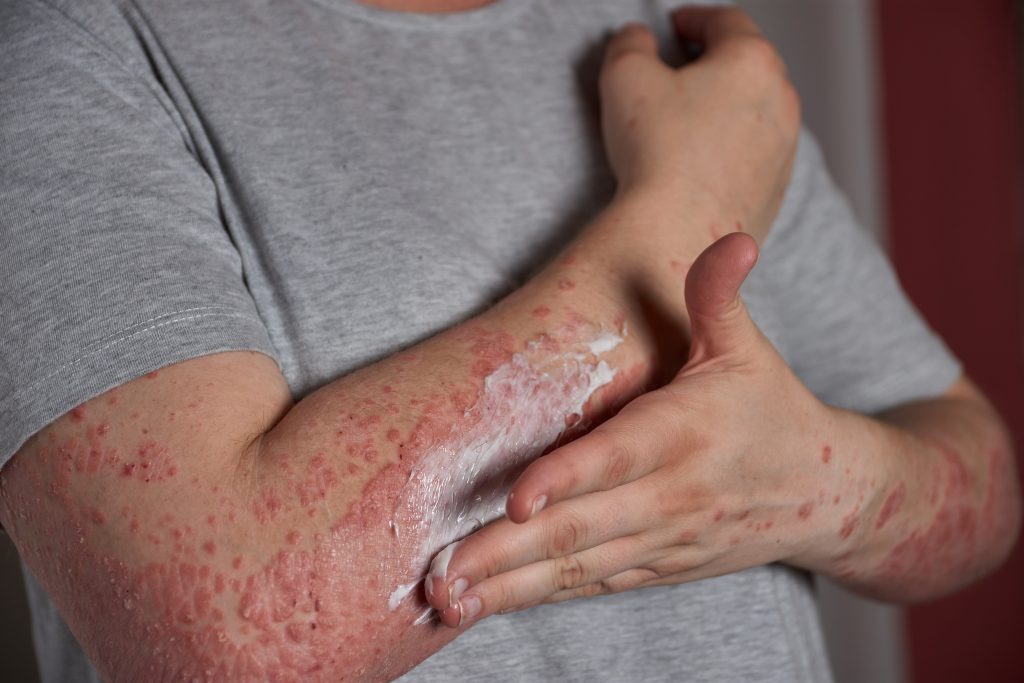Discover everything you need to know about psoriasis with Lilium Skin Clinic’s comprehensive and clinically informed guide. From understanding its underlying causes—such as immune dysfunction, genetics, and environmental triggers—to exploring advanced treatment options, including targeted skincare, light therapies, and medical-grade solutions, this guide is designed to help you effectively manage symptoms, reduce flare-ups, and restore your skin’s health, comfort, and confidence.

Psoriasis is a skin condition characterised by the rapid production and shedding of skin cells, leading to thick patches of white, silver, or red skin. These patches, known as plaques, cause increased inflammation, itching, and flaking of the skin. Psoriasis can vary in size and most commonly appears on the forehead, scalp, knees, elbows, lower back, hands, and feet.
Although it is not contagious and is an immune-mediated disease, certain triggers can worsen flare-ups, such as extreme climates, stress, dry skin, smoking, and certain medications. While psoriasis cannot be cured, its symptoms can be effectively treated to provide long-term relief.
Family history of psoriasis is a significant factor. If you have a close relative with the condition, your risk of developing it increases
Psoriasis is an autoimmune condition where the immune system mistakenly attacks healthy skin cells, leading to rapid cell turnover and the formation of characteristic plaques
Certain triggers like stress, infections (particularly streptococcal infections), and injuries to the skin (known as the Koebner phenomenon) can provoke or exacerbate psoriasis flare-ups
Unhealthy habits like smoking, excessive alcohol consumption, and obesity can increase the risk of developing psoriasis and worsen its severity
Some medications, such as beta-blockers, lithium, and antimalarial drugs, can trigger or worsen psoriasis symptoms in individuals who are predisposed to the condition